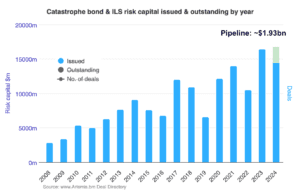Mazda CX-70 will be joining the CX-90 this year

This is going to be a big year for Mazda. It’s kicking off with the just revealed 2024 CX-90. But speaking with Mazda North America President and CEO Jeff Guyton, that’s just the first big development. He told us that the upcoming CX-70 will also be released this year. The CX-70 will be built on the same platform as the CX-90, which means it will be rear-drive-biased and have a plug-in hybrid four-cylinder and a mild-hybrid straight-six on offer. But it will be smaller, with two rows of seats.
We asked Guyton about why Mazda decided to introduce its new engine and chassis platform to the U.S. with the bigger three-row CX-90, when it started with the smaller CX-60 overseas (another two-row, but different from our upcoming CX-70). He said that a major factor was a need to address the increasing competition in the three-row segment and potential weaknesses of the CX-9 it replaces. Specifically, they saw that the CX-9 was hurting on power, interior space and towing. In our first look, all of these do seem to be addressed, though until we drive it, we can’t say exactly how it holds up to other three-rows.
The other part is that the CX-70 will be in a segment Mazda hasn’t really competed in much. Guyton noted that about the closest thing would be the CX-7, which was discontinued just over a decade ago. But he felt that even that isn’t quite the same kind of vehicle or segment. We’re certainly curious to see how the CX-70 shapes up, and whether it will basically be just a shorter CX-90, or maybe something a bit more unique.
Of course we also had to ask about that other plug-in hybrid Mazda revealed: the MX-30 R-EV. So far, Mazda representatives have said it will go on sale sometime this year. Guyton didn’t really commit to any U.S. plans, and he specifically noted that the MX-30 R-EV will be prioritized for Europe and Japan. He gave a few reasons for this. He first noted that they face production constraints, so there are only so many they can build. Furthermore, he said the MX-30 R-EV is a product that makes more sense for those regions, and he backed that up with European sales of the all-electric MX-30. Apparently Europe has purchased more than 15,000 of them. That’s a stark contrast to the less than 600 sold in the U.S. So it definitely makes sense to send whatever MX-30 R-EVs that can be built to the regions that are most likely to buy them.
Now, Guyton didn’t say that the R-EV wouldn’t come here, but his comments do make it seem like the little PHEV’s future in America is uncertain. And the regular electric one is back for another model year in the U.S. We’ll just have to wait and see.
Related video:




